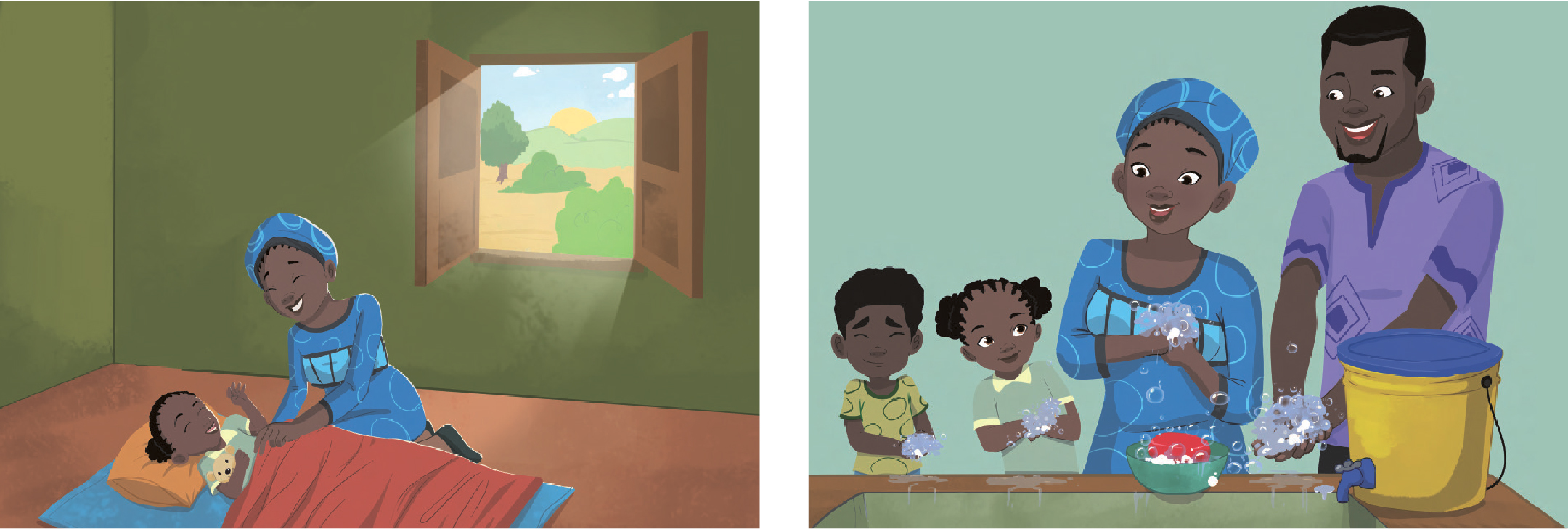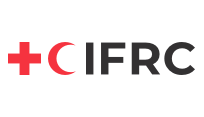F.5 Mum’s Magic Hands (MMH)
The development of Mum’s Magic Hands (MMH) was based on research indicating that emotional motivators like nurture and affiliation can motivate mothers to wash hands with soap. The MMH programme consists of different interactive, creative tools using both emotional and health motivators to increase handwashing practice.

In 2014 Oxfam, in partnership with Lifebuoy and Unilever, examined the challenges to achieving effective handwashing with soap at key times. Research was conducted in three countries to better understand the Motivators and Barriers T.3 to handwashing with soap. Nurture (caring for and bringing up children) was found to be one of the most powerful motivators driving handwashing with soap among mothers. Even during a crisis, mothers continue to nurture their children to ensure they develop and succeed in their lives. Handwashing fits into this narrative of ‘nurture’ leading to ‘success’ - not as a tool for good health, but rather as part of a broader set of values or good manners such as cutting nails, brushing and combing hair, honesty or hard work that are part of ‘living a good life’. Affiliation (or belonging to a group) was also seen as a driver in emergency contexts. Mothers tend to unite together in emergencies, supporting each other and sharing resources. The findings were used to design an interactive Behaviour Change (chapter B ) programme called Mum’s Magic Hands with a set of promotional activities, tools and a training programme for hygiene promoters and handwashing Champions T.22; with the aim of encouraging handwashing with soap to prevent diseases like diarrhoea. An engaging story forms the core narrative of the programme, with Games T.15 and interactive activities, Rewards T.40 such as scratch cards and certificates and several ‘Nudges’ T.9 including stickers and visual reminders. Participants are engaged through consultations and dialogue using the tools, which leads to actions by the target groups to ensure handwashing with soap. It is not a standalone programme but should be integrated into the WASH response. Adaptations were made recently to include COVID-19 prevention, linked to handwashing. Changes have also been made to include men and children and to focus on their role in handwashing behaviour promotion.
Tools and Methods used
Assessment
- Focus Group Discussion T.14
- Observation T.28
- Key Informant Interview T.23
- Barrier and Motivator Analysis T.3
Promotion
- Demonstration T.10
- Household Visit T.18
- IEC Material T.19
- Cues and Nudges T.9
- Public Commitment T.37
- Rewards and Incentives T.40
- Songs and Stories T.47
- Games and Toys T.15
Monitoring and evaluation
Applicability
The MMH approach has been tested in different phases including stable, fragile and less fragile contexts and has proved relevant to each phase in promoting handwashing behaviour. Experience has shown that the MMH approach in emergencies is effective for targeting mothers and other caregivers. The approach has been researched and the findings illustrate that caregivers continue to play a significant role in the wellbeing of the children, even in unpredictable contexts. MMH materials and tools can be made even more interactive when pre-tested and adapted to the relevant contexts. This can include translating the storyboard into local languages, or changing the pictures, to make it more acceptable and improve comprehension. Men and other groups have also been included as caregivers, helping to extend inclusion in the wider population group, increasing the target and reach for behaviour change in handwashing. In 2020, the tools were also tested in response to the COVID-19 pandemic.
Main Requirements / Investments Needed
A set of MMH resources is available including a storyboard, scripts visuals, stickers, training materials and a field guide for both emergency contexts and longer-term situations. In addition, MMH needs hygiene promoters trained to understand the approach and a budget for translation, printing and for training hygiene promoters and community champions. A sample programme implementation plan with a suggested timeline is available including suggestions for Monitoring M.2 using both quantitative methods such as structured Observations T.28 and qualitative methods such as Focus Group Discussions T.14. It is important to ensure that the necessary WASH facilities are also provided (P.2, P.3, P.4, P.5, P.6).
Evidence of Effectiveness
The MMH approach has been widely used across the humanitarian sector in different contexts. Partners in the Hygiene and Behaviour Change Coalition implemented MMH in South Sudan and Northern Syria. The approach was effective in both contexts.
Do
Pre-test the materials and tools
Contextualise tools and resources for ease of acceptance
Provide training for hygiene promoters
Don't
Do not override community views and feedback from the pre-testing exercise
Do not implement MMH in the absence of hardware facilities (handwashing facilities)
Practical Example
In Nepal and the Philippines Oxfam works with local implementing partners and local government. MMH has been a strong pillar of the programme and is potentially being incorporated into the partners’ local capacity, continuing beyond the project lifespan. Materials and tools have also been adapted and shared for preventing COVID-19 transmission through the promotion of effective handwashing.
Key Decision Critria
Response Phase
HP Component
Target Group
Application Level
Target Behaviour
Purpose
To use emotional motivators to promote handwashing with soap among caregivers
References
General MMH overview
Mum’s Magic Hands (undated): Mum’s Magic Hands. Hygiene Promotion to Save Lives
MMH field guide (for emergencies and long-term situations)
Oxfam (2018): Mum’s Magic Hands. A Field Guide for Rapid Implementation of Handwashing Promotion in Emergencies
MMH training materials and story boards
Oxfam (2018): Mum’s Magic Hands. Training Guide
Oxfam (2018): Mum’s Magic Hands. Global Storyboard
Oxfam (2018): Mum’s Magic Hands. Asia Storyboard
Oxfam (2018): Mum’s Magic Hands. Africa Storyboard





